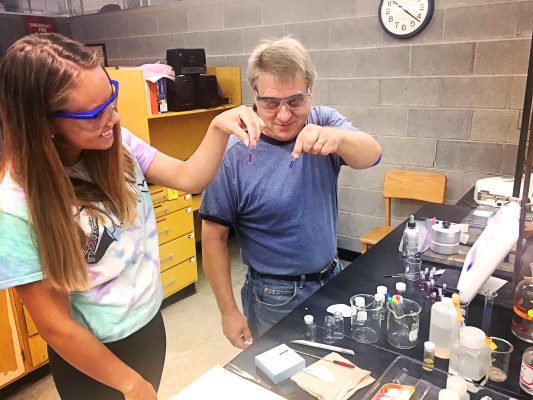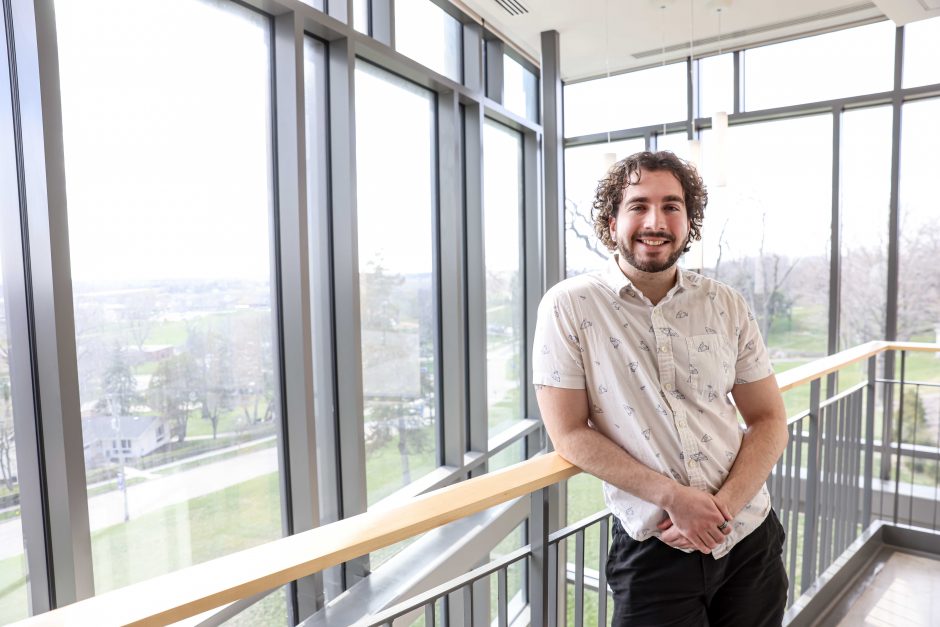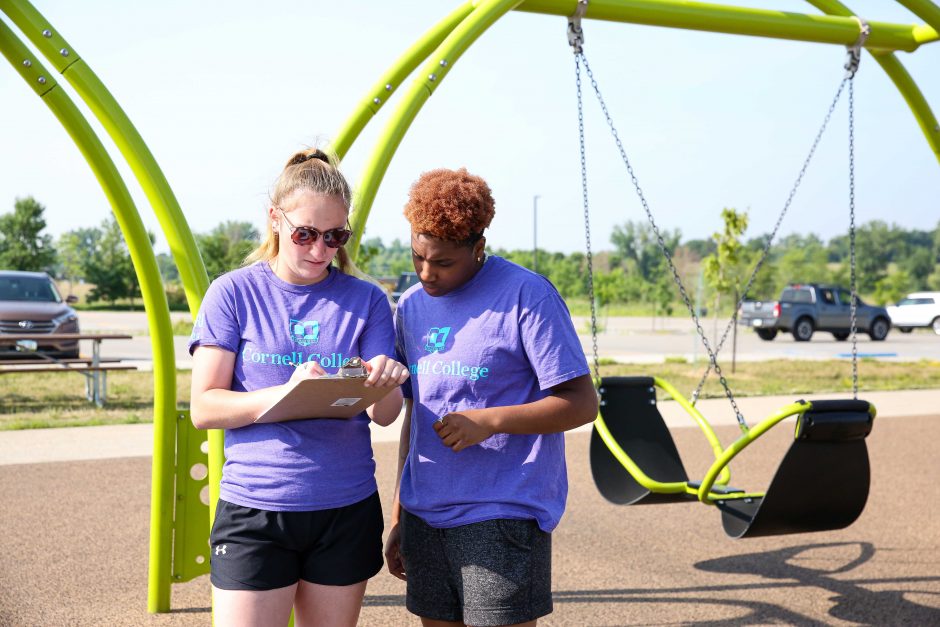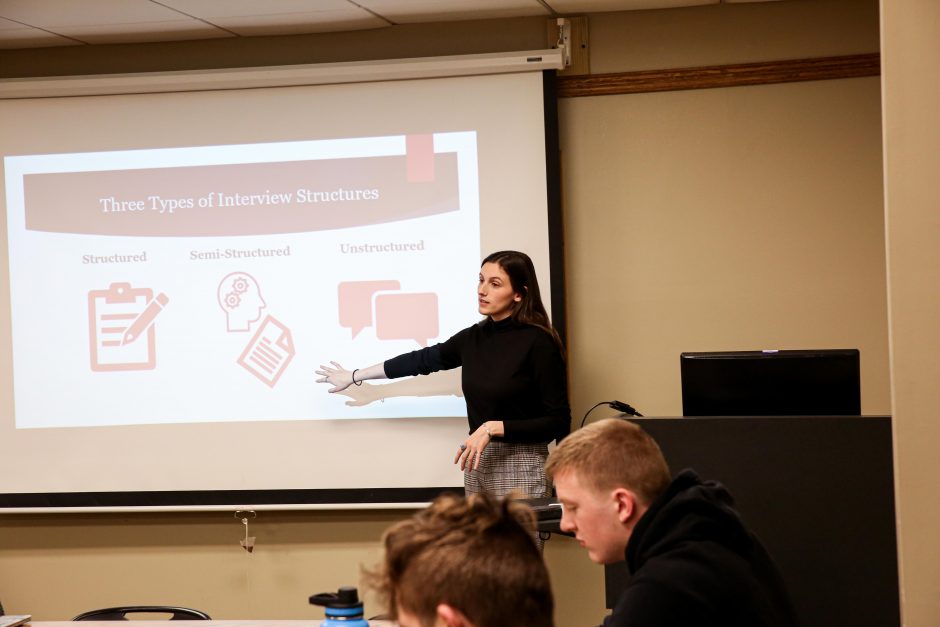High school intern explores scientific research at Cornell
Professor of Chemistry Charley Liberko always has a lab filled with students.
This summer researchers are working with brightly colored test tubes as they study solvatochromic dyes, which are dyes that are sensitive to their environments.

Among the students going in and out of the colorful lab exploration, you’ll find high school intern Mackenzee Albert who is going to be a senior this fall at Prairie High School in Cedar Rapids.
“We have been working with the dye MOEL, which is an acronym for its chemical name. It creates a variety of colors when it is dissolved in different solvents,” Albert said. “If it’s just in water, it’ll be an orange-red color. If it’s in ethanol, it’ll be a deep blue.”
Albert applied and interviewed for this internship through Kirkwood Community College’s Workplace Learning Connection (WLC) program, which connects area students to their futures through hands-on learning experiences. Working as a chemistry assistant at Cornell was her top choice for this summer.
“I really enjoyed it, because there are no strict guidelines with research,” Albert said. “You can explore, and there’s usually not a right or wrong answer. Yes, there are some that are more right, but you can discover it yourself and I really enjoy that part.”
WLC’s Ann Brendes said the program has a 20-year history of working with public, private, and parochial schools in seven countries to help students with career awareness and development.
“Students in high school today are very interested in studying math and science in college with dreams of careers in those fields,” Brendes said. “We are grateful for our partnership with Cornell College. The faculty hosts provide opportunities that help students make more informed decisions at a critical time in their development.”
This is the third year that Liberko has worked with interns through the Workplace Learning Connections program.
“Every high school intern I have had has been outstanding,” Liberko said. “They have been really bright, eager to learn, and excited about their projects. I have always given them projects and challenges where I didn’t know how things would turn out. Every one of them has given me new information that I didn’t have before.”
One of those challenges for Albert focused on a current lab that’s conducted by Cornell students. It explores distilling ethanol from water. While instruments can measure the final ethanol percentage of that lab, Liberko wants to know if there’s an easier, less expensive test.
“Mackenzee put the dye in water and in 100 percent ethanol,” Liberko said. “Then she did 10 percent intervals between those two. We have basically invented this test kit where you take your distillate and add it to a vial and shake it up and you compare the color to the standard. It’s a way to very quickly test ethanol concentration, much like you can test pH with pH paper.”
Albert completed her internship in three weeks and said her biggest takeaway is her growing interest in research.
“It’s not just learning something, but it’s more of a discovery and you can use it to apply to other things,” Albert said. “This project can better help students to understand distillation and it can be used in industry too. I like that process. It’s not just learning for yourself, it’s to help others too.”
Professor of Biology Craig Tepper and Professor of Psychology Melinda Green also worked with WLC interns from nearby high schools during the summer.



